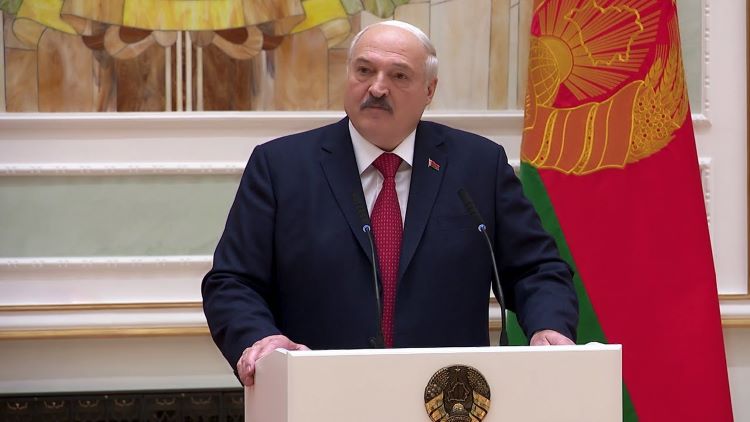Aroa Fandiño
Expert in European law and collaborator of Fundación Alternativas
Often overshadowed by the European Union (EU), the Council of Europe (CoE), the international organization charged with protecting democracy, human rights and the rule of law in Europe, celebrated its 75th anniversary in 2024. Despite its discreet presence in the public eye, its contributions have tangibly shaped the lives of millions of people in Europe.
A key organization for the continent
Founded in 1949, the Council of Europe brings together 46 member states with the aim of strengthening the legal and social unification of Europe. Its cornerstone is the European Convention on Human Rights (ECHR), interpreted and guaranteed by the European Court of Human Rights (ECtHR). Thanks to this framework, crucial precedents have been set in the defense of freedom of expression, the right to a fair trial and protection against torture, among others.
Beyond the ECHR, the CoE has promoted more than 200 legal instruments, such as the European Social Charter, which protects economic and social rights, or the Istanbul Convention, against violence against women. It has also established independent monitoring mechanisms such as the Group of States against Corruption (GRECO) and the Committee for the Prevention of Torture. In addition, it has played a decisive role in the abolition of the death penalty in Europe, establishing this measure as a condition for the accession of new member states.
Spain has played a key role within the Council of Europe. It became a member in 1977, even before adopting its democratic Constitution of 1978, marking a milestone in its democratization process. Its active participation in the promotion of human rights and the rule of law has consolidated its role within the organization.
Impact on people’s lives
The CoE’s work translates into concrete guarantees for citizens. Human rights monitoring, anti-corruption control mechanisms and election observation are examples of its real impact. Its commitment to democracy is also reflected in the creation of the Register of Damages of the Russian war of aggression against Ukraine, a key tool for documenting rights violations in the conflict. In addition, the CoE has adopted a Declaration on the Situation of Minors in Ukraine, urging the return of minors illegally deported by Russia and the prosecution of those responsible.
The CoE has also strengthened its cooperation with Belarus through a contact group with democratic forces led by Sviatlana Tsikhanouskaya, with the aim of establishing democratic structures in the country and making progress in the abolition of the death penalty. The Council of Europe has also addressed the process of Kosovo’s accession to the organization. The Parliamentary Assembly of the Council of Europe has endorsed Kosovo’s candidacy, a key step in its integration into this political community. The final decision will depend on consensus in the Committee of Ministers, the CoE’s governing body. All this without neglecting the response to new challenges: the CoE is at the forefront in the face of challenges such as the regulation of artificial intelligence, the protection of digital rights and the recognition of the right to a healthy environment as a fundamental human right.
Strengths and weaknesses.
The Council of Europe has proven to be a pillar of stability on the continent, with a capacity for influence that transcends its member states and goes beyond the European continent. Its intergovernmental and inclusive structure and its independence from the EU allow it to address sensitive issues with a broader and more diverse perspective.
However, it faces significant challenges. The lack of enforceability of its decisions makes it difficult to implement many of its recommendations. The slow implementation of some ECtHR judgments and political divergences among its members also limit its effectiveness. Moreover, its low visibility prevents ordinary people from being aware of the impact of the organization’s work and fully appreciating its role.
The future of the Council
With the recent Reykjavik Summit (2024), the European leadership has ratified its commitment to the CoE, setting new priorities such as protecting the environment, safeguarding digital rights and strengthening education for democracy. During the summit, the Declaration of Principles for Democracy was adopted, which reinforces the monitoring of the state of democracy in member countries.
Collaboration between the Council of Europe and the European Union has been significantly strengthened. The EU has adopted the Convention on Preventing and Combating Violence against Women and Domestic Violence, and the Convention on Artificial Intelligence and Human Rights, Democracy and the Rule of Law, and the two organizations are working together on strategic programs in the Balkans, Eastern Europe and the Mediterranean. In addition, EU accession to the European Convention on Human Rights remains a key priority to strengthen normative cohesion on the continent.
In September 2024, Alain Berset took office as Secretary General of the Council of Europe. His leadership will focus on three major priorities: supporting Ukraine in its fight against Russian aggression by pushing for a compensation mechanism for the country based on the success of the Register of Damage, and a special court for the crime of aggression, revitalizing democracy through education, and consolidating unity among the 46 member states by highlighting diversity as a strength for inter-institutional dialogue.
Ultimately, in a world where democratic values are under pressure, the Council of Europe is a bastion of democracy, human rights and the rule of law. Its challenge will be to strengthen its role, enforce its decisions and reach out to citizens so that its 75-year legacy will inspire Europe to continue building a continent at peace and in favor of international relations based on multilateralism.
Long live the Council of Europe.
© Fundación Alternativas / All rights reserved






